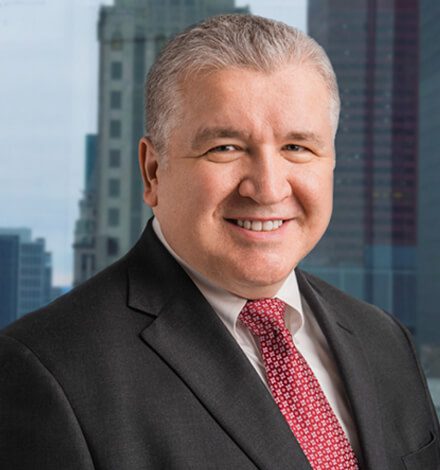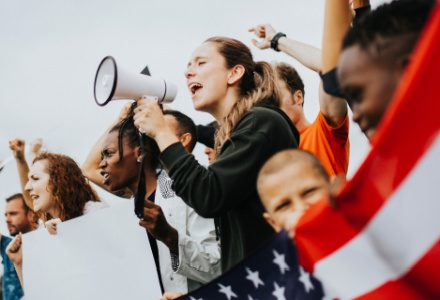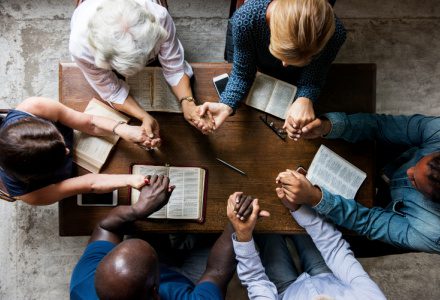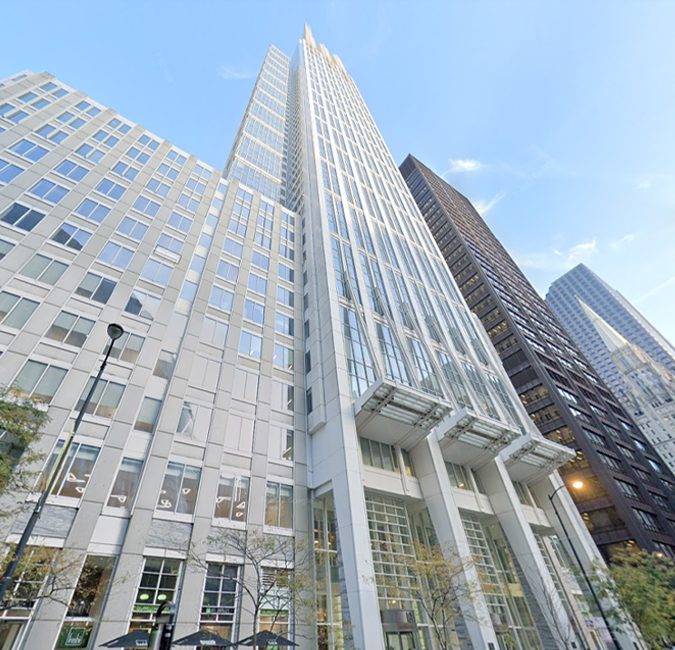Religious Liberty
Chicago Religious Liberty Attorney
Religious liberty is an indisputable right for all Americans. Religious freedom is protected by the First Amendment of the United States Constitution. Religious liberty is one of the key reasons European settlers came to America in the 1600s. They wanted to escape the religious wars and persecutions happening in Europe. The religion clauses contained in the First Amendment to the U.S. Constitution were added because the framers of the Constitution wanted to ensure that the federal government would not oppress religious groups or interfere with the free exercise of religion.
Religious Freedom USA states, “Unlike other liberties, religious liberty was founded and grown on American soil and not an inheritance brought from Europe with the founding fathers.” This right is a source of American pride, and we continue to fight for it when we see religious liberties being abused or taken away from American citizens.
At The Law Offices of George M. Sanders, PC, we are proud to use our considerable legal knowledge and experience to help those facing discrimination or harassment because of their beliefs. If you believe an entity is violating your civil rights, seek help from a lawyer today.
Your Rights to Religious Liberty
Interpretations of religious liberty have evolved over the years and have been controversial. A common issue concerning the free exercise clause in the First Amendment is when state and federal laws are not enforceable against certain religious groups under the free exercise of religion clause contained in the First Amendment. For example, in 1972, the U.S. Supreme Court in Wisconsin v. Yoder held that the State of Wisconsin’s efforts (pursuant to state law) to force Amish parents to send their children to high school until they turned 16 violated their First Amendment right to the free exercise of their religion.
In 1990, however, the Supreme Court limited the circumstances in which individuals could claim that a state law or state action violated their right to the free exercise of their religion. In Employment Division, Department of Human Resources of Oregon v. Smith, the Supreme Court addressed whether the ceremonial use of peyote by members of the Native American Church was entitled to protection from Oregon’s law prohibiting the use of peyote. The Supreme Court held that state laws were not subject to challenge under the free exercise clause of the First Amendment if the state law was universally applied in a consistent manner. Because the State of Oregon did not allow for any exemptions from its prohibition on the use of peyote, the members of the Native American Church were not entitled to an exemption from the state law under the free exercise clause.
After the decision in Smith, courts look at whether a law or practice challenged under the free exercise clause granted exemptions from the law to other groups or individuals but not to religious groups. If state law or practice did contain such exemptions, the state or federal government’s refusal to grant an exemption to a religious group or individual will be subjected to strict and searching scrutiny.
The free exercise clause will also protect religious groups and individuals from open discrimination and hostility by state and federal authorities. In Masterpiece Cakeshop, Ltd. v. Colorado Civil Rights Commission, the Supreme Court reversed an adverse action by the Colorado Civil Rights Commission against Masterpiece Cakeshop because evidence showed that its decision was influenced, in part, by hostility towards the religious beliefs of the owner of Masterpiece Cakeshop. The Supreme Court stated that “Phillips was entitled to a neutral decision maker who would give full and fair consideration to his religious objection as he sought to assert it in all of the circumstances in which this case was presented, considered, and decided.” Religious freedom is also protected by free speech and freedom of association rights that are also protected by the First Amendment. In Shurtleff v. City of Boston, Massachusetts, the Supreme Court addressed the City of Boston’s refusal to fly a Christian flag outside its City Hall, even though it would allow other groups to fly flags with political and cultural messages. The City of Boston would allow organizations to reserve space at the City Hall Plaza for events and would let these organizations fly a flag on one of the flag poles in front of the City Hall as part of the event. The Supreme Court held in Shurtleff that the City of Boston engaged in viewpoint discrimination when it refused to fly the Christian Flag at an event organized by Mr. Shurtleff precisely because of its religious message.
Examples of Notable Religious Freedom Cases
Cases asserting that a state or the federal government is violating a group or individual’s right to the free exercise of religion typically raises complex legal and factual issues. Oftentimes, these cases deal with hot-button issues. For example, during the COVID-19 pandemic, religious exemptions to vaccinations caused widespread debate and disagreement. At the time, a Bloomberg headline read, “Freedom of Religion Means Freedom to Say No to Vaccines.” According to the article’s author, a professor of law at Harvard University, this is the correct approach to applying the principles regarding freedom of religion because the government or an employer cannot second guess or interfere with religious acts or beliefs. Applying lockdown orders to churches also raised serious issues concerning the free exercise of religion. Under Smith, the locking down of churches was held unconstitutional in light of the many exemptions to the lockdowns given to secular businesses.
Here are a few more examples of influential cases involving religious liberties which proceeded all the way to the Supreme Court.
In Kennedy v. Bremerton School District, the Supreme Court addressed the decision by the Bremerton School District to fire a high school football coach for silently praying on the football field at the end of the game. Mr. Kennedy would silently pray on the field at a time when the school district allowed teachers and coaches who had supervised the game to exercise personal time. The school district claimed that it took action against Mr. Kennedy because it could not be seen as endorsing religion. The Supreme Court rejected the claim that Mr. Kennedy’s silent prayer in any way resulted in the endorsement by the school of Mr. Kennedy’s religious views. The Supreme Court concluded by stating that “the only meaningful justification the government offered for its reprisal rested on a mistaken view that it had a duty to ferret out and suppress religious observances even as it allows comparable secular speech. . . . [t]he Constitution neither mandates nor tolerates that kind of discrimination.”
In Fulton v. City of Philadelphia, Pennsylvania, the Supreme Court held that the City of Philadelphia violated the free exercise clause of the First Amendment when it refused to enter into a contract with Catholic Social Services for the placement of children with foster care parents. Catholic Social Services follows the teachings of the Catholic Church and will not certify unmarried couples or same-sex couples through its certification program for participation in the foster care program. Many other organizations existed that would certify unmarried couples and same-sex couples for the foster care program. The City of Philadelphia refused to renew its contract with Catholic Social Services on the ground that Catholic Social Services’ policy violated the city’s Fair Practices Ordinance. The Supreme Court held that the City of Philadelphia would grant organizations exemptions from the Fair Practices Ordinance for various reasons and could not discriminate against Catholic Social Services by refusing to grant it an exemption. The City of Philadelphia’s actions violated Catholic Social Services’ First Amendment right to the free exercise of religion.
In Carson v. Pender Makin, the Supreme Court held that Maine’s tuition assistance program could not refuse to provide tuition assistance to parents who wanted to send their children to a religious school when Maine would provide tuition assistance to parents sending their children to a secular private school. The decision in Carson shows the Supreme Court’s unwillingness to tolerate discrimination against religious groups and individuals by states under the guise of preventing the support of religion by the state.
Call an Experienced Civil Rights Attorney Today
Despite the appreciation most Americans have for religious freedom, many people are still unduly discriminated against because of their religious affiliations, acts, or ideals. If you have experienced religious discrimination, a reputable attorney can help you pursue justice. Religious freedom is deeply embedded in American history and constitutional law.







